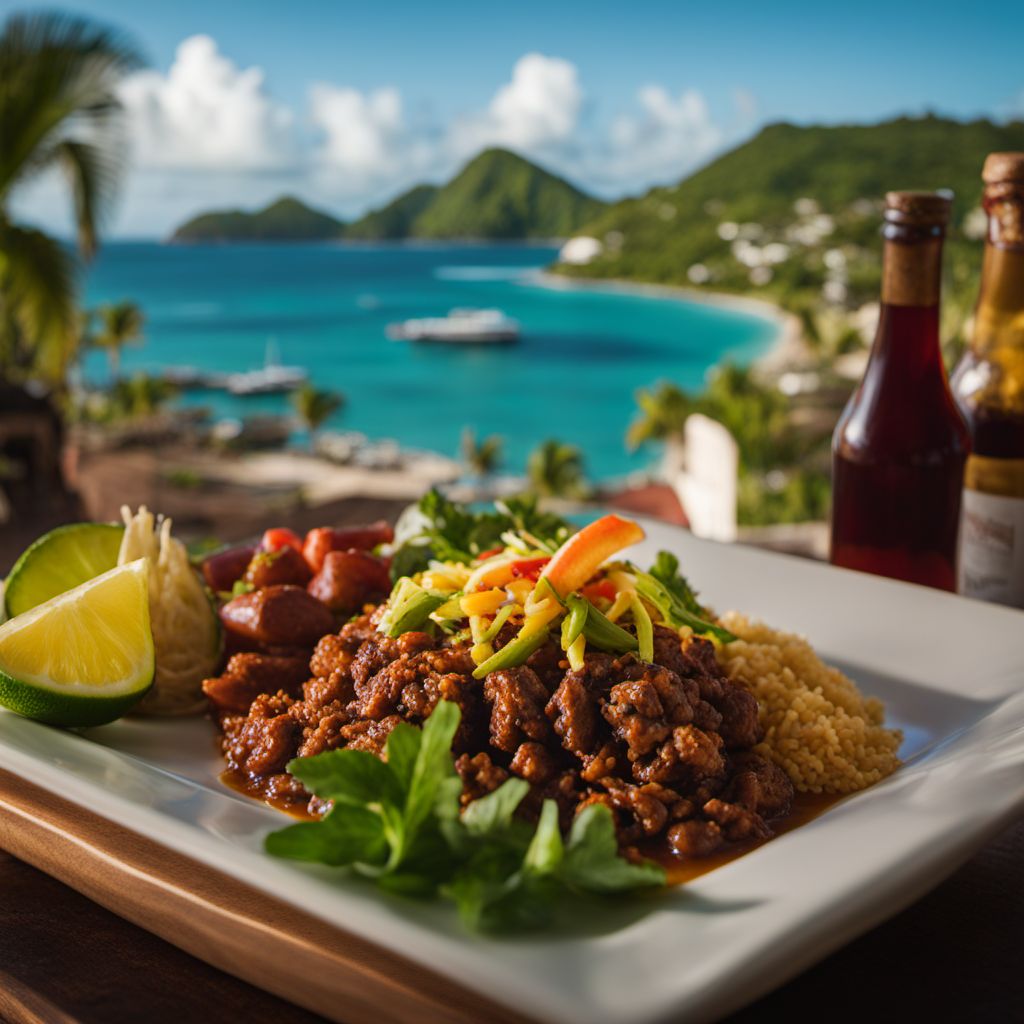
Cuisine
Saint Lucian cuisine
Saint Lucian cuisine is a fusion of African, French, and Caribbean flavors. The cuisine is characterized by its use of fresh seafood and tropical fruits, such as mangoes and papayas. The island's volcanic soil also produces a variety of fresh vegetables, which are used in many of the island's dishes.
Typical ingredients
Fresh seafood, Tropical fruits, Rice, Beans, Chicken, Pork
Saint Lucian cuisine is known for its national dish, green fig and saltfish, which is made with green bananas and salted cod.
More cuisines from this region...
Jamaican cuisine, Trinidad and Tobago cuisine, Haitian cuisine, Cuban cuisine, Dominican Republic cuisine, Puerto Rican cuisine, Antigua and Barbuda cuisine, Bahamian cuisine, Barbadian cuisine, Dominica cuisine
History
Saint Lucian cuisine has been shaped by its history and geography. The island was first inhabited by the Arawak and Carib peoples, who were later displaced by European colonizers. African slaves were brought to the island to work on sugar plantations, and their culinary traditions have had a lasting impact on Saint Lucian cuisine. The island's volcanic activity has also influenced its cuisine, as the soil produces a variety of fresh fruits and vegetables.
Cultural significance
Saint Lucian cuisine is an important part of the island's culture and heritage. Many of the island's traditional dishes are served at festivals and celebrations. The cuisine is also an important part of the island's tourism industry.
Health benefits and considerations
Saint Lucian cuisine is generally healthy, as it relies heavily on fresh fruits and vegetables and lean proteins. However, some dishes may be high in sodium or fat.
Saint Lucian cuisine recipes Browse all »
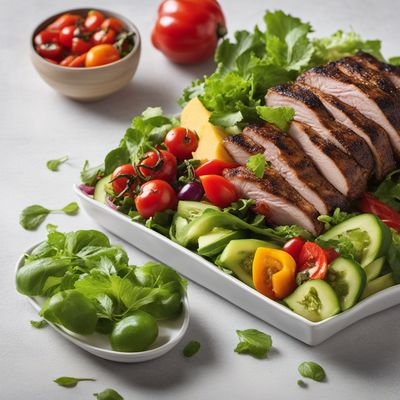
Saint Lucian Ploughman's Lunch
Tropical Delight Platter: A Saint Lucian Twist on the Classic Ploughman's Lunch

Saint Lucian Spiced Fruit Punch
Tropical Delight: Saint Lucian Spiced Fruit Punch
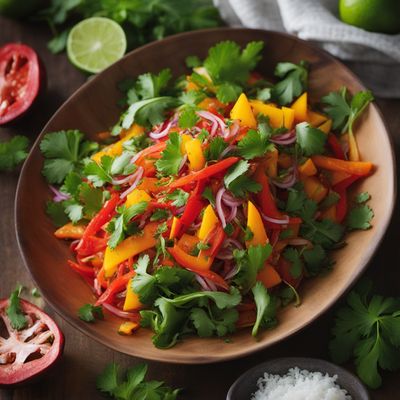
Saint Lucian Inspired Byggryn Salad
Tropical Delight Byggryn Salad: A Fusion of Norwegian and Saint Lucian Flavors
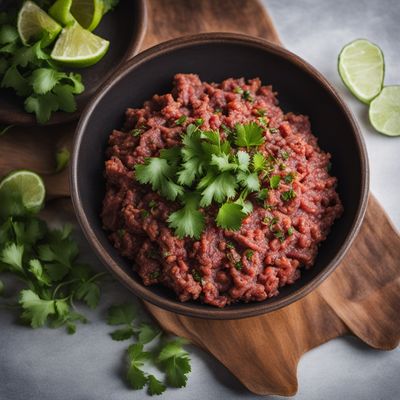
Saint Lucian Spiced Beef Tartare
Caribbean Twist: Spiced Beef Tartare with Island Flavors
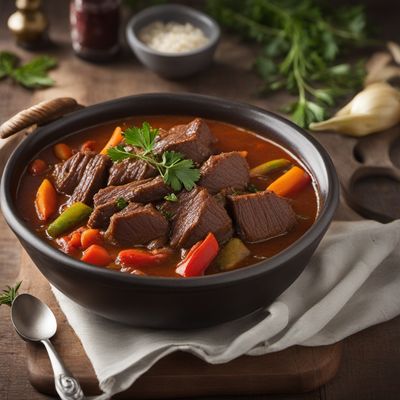
Stewed Beef with Local Spices
Caribbean Spiced Beef Stew

Smalahove with a Caribbean Twist
Caribbean Smalahove: A Fusion of Norwegian and Saint Lucian Flavors
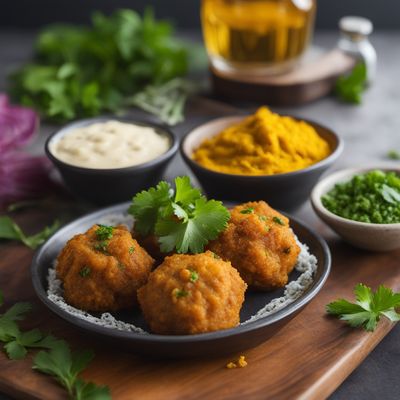
Saint Lucian Style Rava Bonda
Caribbean Delight: Saint Lucian Rava Bonda
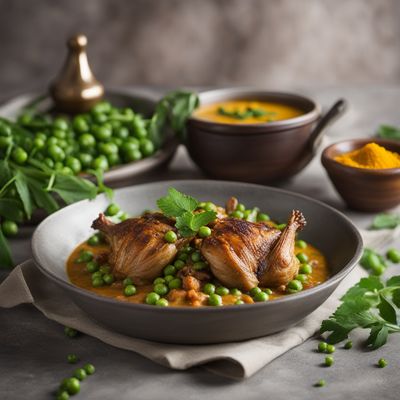
Quail with Peas in Coconut Curry Sauce
Coconut Curry Quail Delight

Saint Lucian Kale Farinata
Caribbean Kale Delight
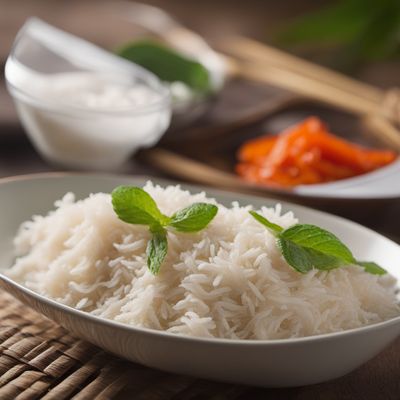
Saint Lucian Coconut Sushki
Coconut Delight: Saint Lucian Twist on Russian Sushki
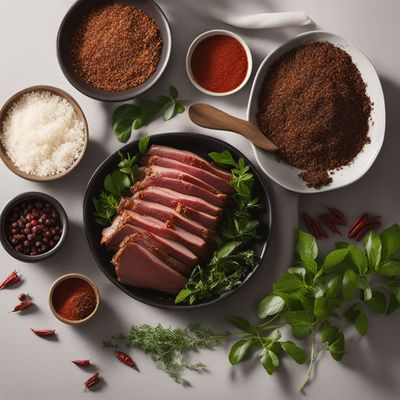
Smoked Pork with Island Spice Rub
Caribbean Smoked Pork Delight

Saint Lucian Pumpkin Stew
Caribbean Delight: Saint Lucian Pumpkin Stew